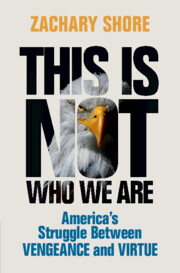Introduction
From Vengeance to Virtue
Published online by Cambridge University Press: 19 January 2023
Summary
America emerged from World War II as the undisputed superpower. But during the war, the United States committed numerous inhumane acts against the innocent. It imprisoned thousands of American citizens in concentration camps because of their race. It used nuclear weapons on entire cities, indiscriminately killing some 200,000 civilians. And it imposed a punishing peace on Germany, which for two painful years caused countless children and adults to starve. As I explored the process that produced these decisions, I fully expected that racial animus and wartime hatreds alone would explain them. But it couldn’t. To my surprise, the majority of key decision makers, along with much of the American public, opposed these harsh measures. The most remarkable aspect of these policies was precisely how little support and how much ambivalence they actually produced. But if most of the government’s top leaders supported mercy, how and why were these vengeful policies adopted? That is the crucial question that drives Part I. Part II tackles the flip side of the puzzle. It asks how American leaders sought to, in essence, atone for some of its own wartime cruelties.
Information
- Type
- Chapter
- Information
- This Is Not Who We AreAmerica’s Struggle Between Vengeance and Virtue, pp. 7 - 18Publisher: Cambridge University PressPrint publication year: 2023
